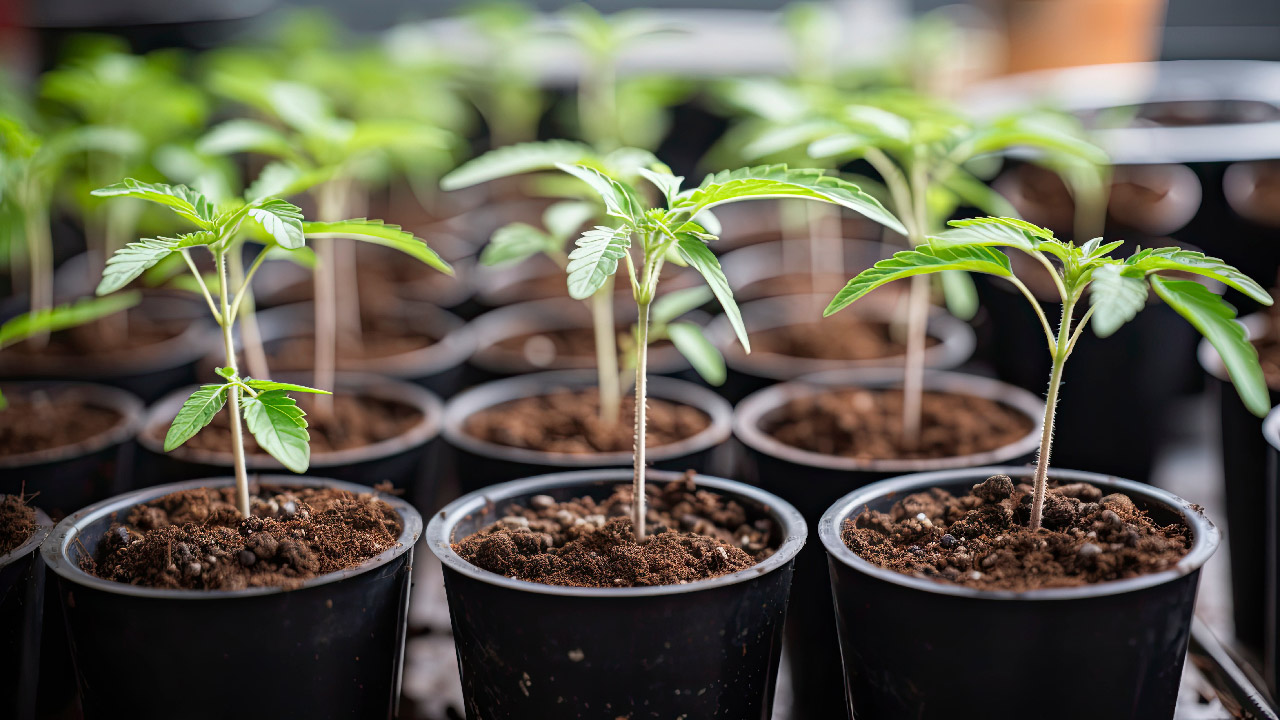
The cultivation of cannabis has gained immense popularity in recent years, with marijuana clones emerging as a favored choice for growers of all levels. Cloning offers a reliable way to replicate your favorite cannabis plants, preserving their genetic traits while accelerating the cultivation process. Whether you're a beginner or an experienced grower, understanding the nuances of marijuana clones can significantly enhance your harvest quality and efficiency.
This comprehensive guide dives deep into marijuana cloning, exploring its benefits, step-by-step methods, and best practices to achieve optimal results.
What Are Marijuana Clones?
marjuana plants near me are genetically identical cuttings taken from a "mother plant," cultivated to grow as separate plants. Unlike growing cannabis from seeds, cloning ensures the offspring inherits the same genetic makeup as the parent plant, including its growth patterns, cannabinoid profile, and resistance to diseases.
The primary advantage of cloning is predictability. Growers can expect the same flowering time, yield, and potency as the mother plant. This is particularly beneficial when working with strains that have desirable traits, such as high THC content or unique terpene profiles.
Advantages of Cloning Marijuana Plants
- Preservation of Genetics
Cloning allows growers to preserve specific genetics indefinitely. This is especially useful for maintaining rare or high-performing strains without the need for repeated breeding. - Consistency in Results
Since clones are identical to the mother plant, the resulting crops are uniform in terms of height, potency, and yield. This consistency is invaluable for commercial growers aiming for predictable outputs. - Faster Growth Cycle
Clones bypass the germination stage, saving time and allowing growers to focus on vegetative growth and flowering. This accelerated timeline can lead to multiple harvests per year. - Cost-Effectiveness
While purchasing seeds repeatedly can be costly, cloning minimizes expenses by providing a self-sustaining source of new plants. - Easy Troubleshooting
Knowing the genetic makeup of your clones helps anticipate potential issues and apply tailored solutions.
How to Clone Marijuana Plants: Step-by-Step Guide
Creating marijuana clones requires precision and attention to detail. Here’s a detailed breakdown:
Step 1: Selecting a Healthy Mother Plant
- Choose a mother plant that is at least two months old and exhibits robust health.
- The ideal mother plant should have vigorous growth, no signs of pests or diseases, and the desired traits you wish to replicate.
Step 2: Gathering Tools and Materials
You’ll need the following items:
- A sterilized razor blade or sharp scissors
- Rooting hormone (gel, powder, or liquid)
- Rockwool cubes or other rooting mediums
- A humidity dome
- Spray bottle with water
- Cloning solution or nutrients
- A grow light
Step 3: Taking Cuttings
- Use a sterilized blade to cut a 4–6-inch section from the mother plant.
- Make the cut at a 45-degree angle just below a node, as this promotes root growth.
- Remove the lower leaves and any unnecessary foliage to reduce energy consumption during rooting.
Step 4: Preparing the Cuttings
- Dip the cut end of each cutting into a rooting hormone to stimulate root development.
- Place the treated cutting into a pre-soaked rooting medium, ensuring it is securely positioned.
Step 5: Providing the Ideal Environment
- Place the cuttings in a humidity dome under a grow light set to a low intensity.
- Maintain humidity levels of 70-80% and a temperature range of 70-75°F (21-24°C).
- Mist the cuttings daily and ensure the rooting medium remains moist but not waterlogged.
Step 6: Transplanting the Clones
- Roots typically develop within 10-14 days. Once the roots are strong and visible, transplant the clones into pots with nutrient-rich soil or hydroponic systems.
- Gradually acclimate the clones to lower humidity levels to avoid shock.
Common Mistakes to Avoid When Cloning Cannabis
- Using an Unhealthy Mother Plant
Cloning from a stressed or unhealthy plant can result in weak clones prone to diseases. - Improper Sterilization
Always sterilize your tools to prevent infections or contamination. - Neglecting Humidity and Temperature
Low humidity or fluctuating temperatures can hinder root development and stunt growth. - Overwatering or Underwatering
Striking the right balance in moisture is critical. Overwatering can lead to rot, while underwatering can dry out the cuttings.
Caring for Marijuana Clones: Best Practices
To ensure the success of your clones, adhere to these guidelines:
- Light Exposure
Clones require gentle light to encourage rooting. Use fluorescent or LED grow lights with low intensity during the initial stages. - Nutrient Management
Avoid feeding clones high concentrations of nutrients. Instead, use a diluted cloning solution or water until they establish strong roots. - Pest and Disease Prevention
Regularly inspect your clones for pests like spider mites or diseases like powdery mildew. Maintain a clean growing environment to mitigate risks. - Pruning and Training
Once the clones establish themselves, prune and train them to optimize light exposure and airflow.
Marijuana Clones vs. Seeds: Which Is Better?
The choice between clones and seeds depends on your goals and resources.
Advantages of Seeds
- Genetic diversity
- Resistance to stress during germination and early growth
- Opportunity to discover unique phenotypes
Advantages of Clones
- Faster cultivation cycle
- Guaranteed replication of desired traits
- Ideal for commercial-scale operations
Both methods have their merits, and combining them can offer a well-rounded approach to cannabis cultivation.
Where to Source Marijuana Clones
Clones can be sourced from reputable dispensaries, nurseries, or experienced growers. When purchasing clones, ensure they are healthy, pest-free, and sourced from a reliable provider. Always comply with local laws and regulations regarding cannabis cultivation.
Conclusion
Marijuana clones are an excellent way to streamline cannabis cultivation, offering growers consistency, cost savings, and efficiency. By following the proper cloning techniques and maintaining a supportive environment, even beginners can achieve remarkable success.
Whether you're cultivating for personal use or commercial production, mastering the art of cloning is a valuable skill that can elevate your cannabis-growing journey. With patience and practice, marijuana clones can become the cornerstone of a thriving and sustainable cannabis garden.
